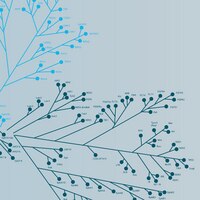14-630 Sigma-AldrichKDR Protein, active, 10 µg
Active, N-terminal His6-tagged, recombinant, human KDR amino acids 790-end,
for use in Kinase Assays.
More>>
Active, N-terminal His6-tagged, recombinant, human KDR amino acids 790-end, for use in Kinase Assays. Less<<
Recommended Products
Overview
| Replacement Information |
|---|
| Description | |
|---|---|
| Catalogue Number | 14-630 |
| Brand Family | Upstate |
| Trade Name |
|
| Description | KDR Protein, active, 10 µg |
| Overview | human KDR expressed by baculovirus in Sf21 insect cells |
| References |
|---|
| Product Information | |
|---|---|
| Quality Level | MQ100 |
| Applications | |
|---|---|
| Application | Active, N-terminal His6-tagged, recombinant, human KDR amino acids 790-end, for use in Kinase Assays. |
| Key Applications |
|
| Physicochemical Information |
|---|
| Dimensions |
|---|
| Materials Information |
|---|
| Toxicological Information |
|---|
| Safety Information according to GHS |
|---|
| Safety Information |
|---|
| Storage and Shipping Information | |
|---|---|
| Storage Conditions | 6 months at -70°C |
| Packaging Information | |
|---|---|
| Material Size | 10 µg |
| Transport Information |
|---|
| Supplemental Information |
|---|
| Specifications |
|---|
| Global Trade Item Number | |
|---|---|
| Catalogue Number | GTIN |
| 14-630 | 04053252277849 |
Documentation
KDR Protein, active, 10 µg MSDS
| Title |
|---|
KDR Protein, active, 10 µg Certificates of Analysis
| Title | Lot Number |
|---|---|
| KDR, active - D7SN051U-O | D7SN051U-O |
| KDR, active - D7SN051U-P | D7SN051U-P |
FAQ
| Question | Answer |
|---|---|
| Why is it important to shake the reaction mixture during the incubations? | It is important to shake the reaction mixture during incubations so that the substrate and the enzyme get good interaction. If you do not have access to a shaking incubator, use a water bath for the incubations, removing the tubes regularly to vortex. |
| What type of buffer is best for lysis when attempting to preserve a protein? | The best buffer is Buffer A. It is composed of 50mM Tris/HCl, pH 7.5, 1mM EGTA, 1mM EDTA, 1mM Sodium Orthovanadate (activated), 10mM Na B-glycerolphosphate, 50mM NaF, 5mM Na pyrophosphate, 1% w/v Triton X-100, 0.1% w/v 2-mercaptoethanol, 1ug/ml each of aprotinin, leupeptin and pepstatin, 1mM PMSF and 1mM microcystin (this is optional). QS with water. You may store Buffer A in aliquots at -20°C for 6 months. |








